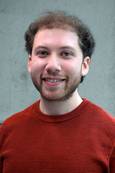Main content
Top content
A3 »You are Guest Worker Children!« Science, School and the Production of Figures of Migration
Knowledge is never neutral; it is produced within social power relations. This critical perspective must also be applied to the academic production of the meaning of migration through figures. Project A3 offers a reflexive analysis of academic knowledge production through figures of migration and its practical transmission in the school system. It examines the academic discourse on migration and diversity within the educational system and its social impact in the Federal Republic of Germany over half a century, starting from the 1960s. We observe interactions between academic and practice-oriented educational science in the production of concepts, in order to address a field of action at the intersection of science, education, and society – as this field has strongly influenced both the handling of diversity in Germany and the development of migration research. The focus here is on concepts for categorising migrantised individuals in school contexts. Which ideas or attitudes towards migration and diversity are anchored by which actors, when, where, and how are they embedded in key figures of migration-related research as a »cultural stock of concepts« (Kirchmeier 2012)? How does this (re)produce social order under the conditions of migration-induced social diversity? How, and with what effect, does academic discourse encode the reality of a migration society?
The project addresses its key questions from a historical perspective. The data is drawn from a systematically built corpus, which includes educational science publications from the 1960s onwards that categorise pupils as migrants and are located at the interface of research and school practice. The corpus also encompasses relevant knowledge frameworks from various related disciplines. The study follows the approach of historical semantics (Kollmeier 2012), which understands scientifically produced terms (e.g., »Gastarbeiterkinder«, »Ausländerkinder«) as elements of complex negotiations of meaning. These terms are analysed over time in specific contexts of use, in their textual environment, and within their knowledge frameworks, in order to identify patterns, mechanisms, and dynamics of the linguistic production of ›figures of migration‹.





